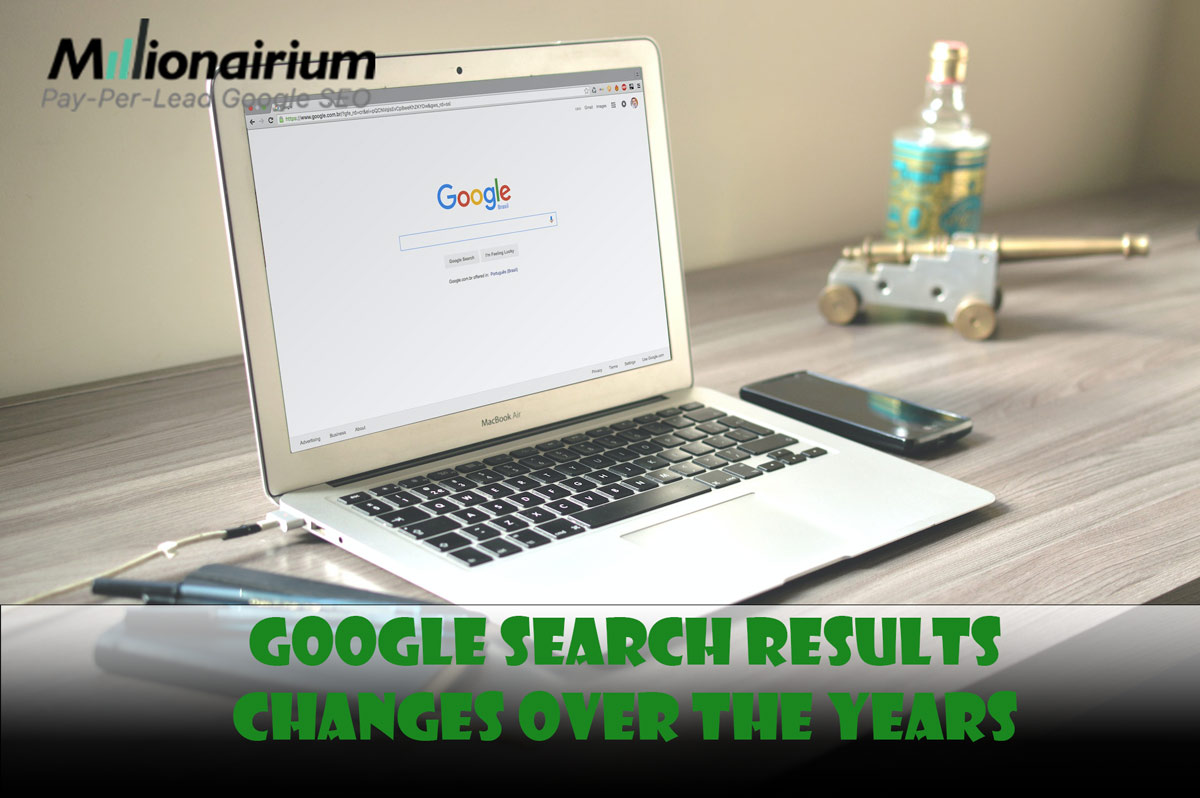





Google search results pages change over time to increase Google Adwords revenue – what does this mean for SEO and Adwords?
As an SEO expert, my goal has always been to get our clients ranked at the top of Google search results (organically) for their important keywords. However, what I just said has changed its meaning over the years.
Sadly, I must admit that today, just being ranked at the top of Google organically will not make you successful. Rather, you have to get there organically as well as through Google Ads.
When I first started SEO in 2003, Google was just becoming the most popular search engine. Why? For two reasons:
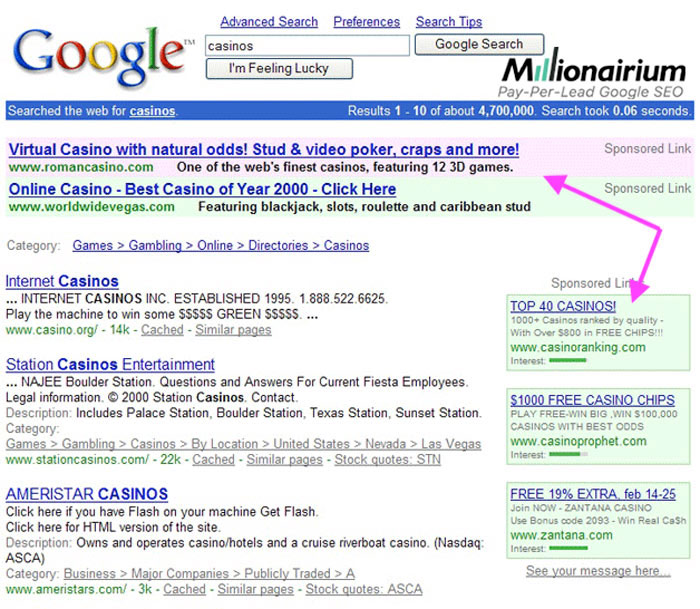
In contrast, their rival Yahoo! mixed organic and sponsored listings together. They even charged big companies to push their copy higher on the search results.
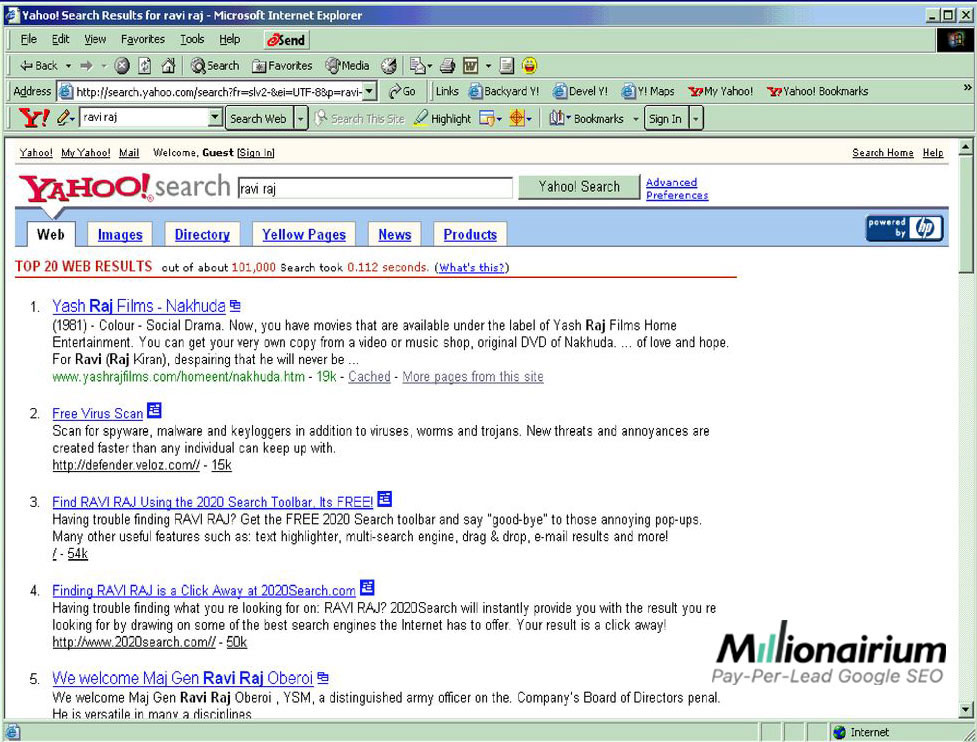
According to Shirin Ghaffary’s article on Vox, In Google’s early days, it was easy to understand what Google stood for: “Don’t let advertisers buy their way to the top of search results, don’t charge people to find information, don’t spam people with banner ads on the homepage.”
But Google soon changed direction at least on some “don’t be evil” thinking.
Today, Google search results pages don’t look anything like they did in the early years. I don’t mean just the UI, but rather what it shows its visitors.
In most cases, 100% of the initial first-page result is filled by those who are paying Google through Google Adwords (sponsored listings).
This is a snapshot of Google’s first page results that I took today:
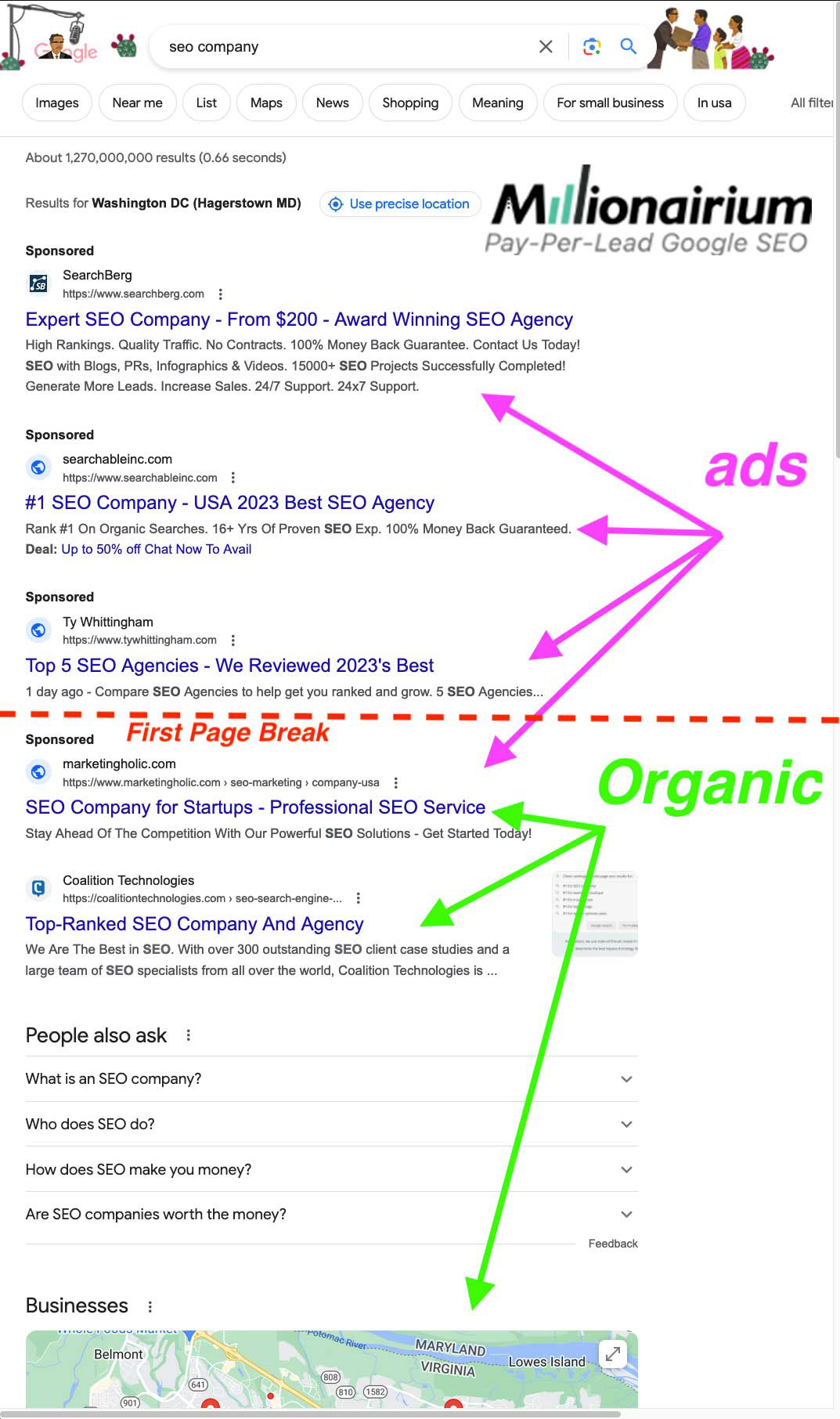
As you see in the image above, the “sponsored” listings continue even AFTER you scroll down the page.
Today, Google has used 110% of the first-page listings results for ads (sponsored listings). The reason: simple. To increase the number of clicks it gets for its advertisers through sponsored listings – thus driving its revenue even further and satisfying their shareholders.
In 2022, Google made almost $280 Billion. Although Google has many streams of revenue, 58% of it comes directly from Google Adwords. And since it has hungry shareholders, it let go of its long-held ethics of “don’t be evil” and turned almost like its competitors that it tried so hard to be different from in its early years.
Now, let me show you the progress of changes to Google’s first page results over the years.
I’ve also measured the percentage of ads vs. organic results from the beginning until now.
This is when I first started working in the SEO industry. Then, Google’s first-page search results were 76% organic and 24% sponsored.
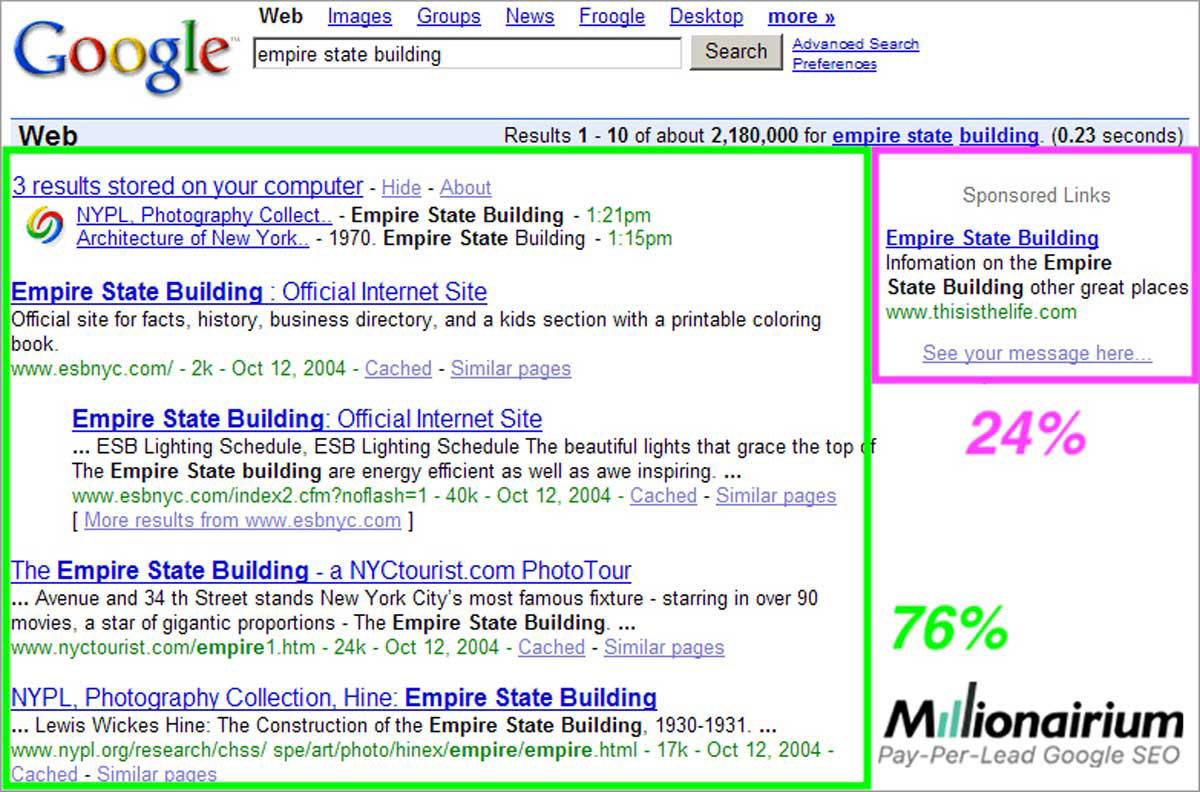
Google started increasing the space for the ads from 24% to 38%. Thus leaving 62% of the first page of the search results for organic results.
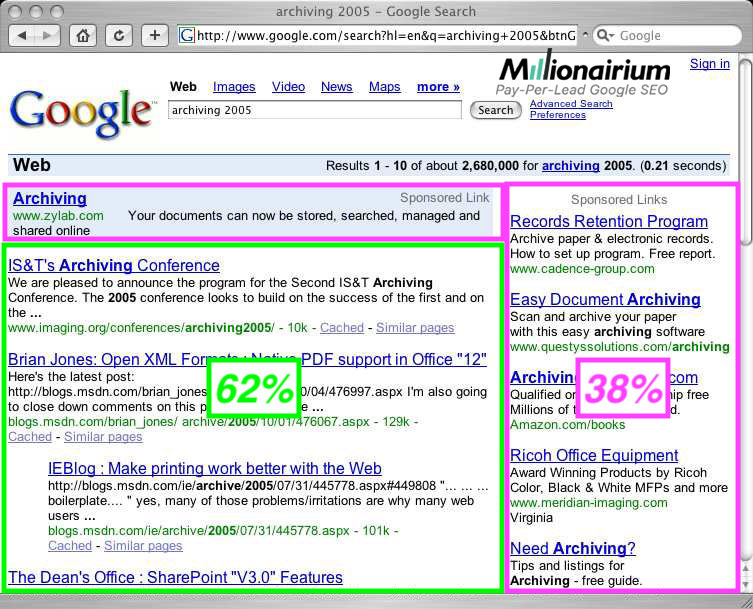
This was the year Google decided that it wanted to allocate more than half of the space on the first page to sponsored listing; moving from merely 38% to over 54% ad space.
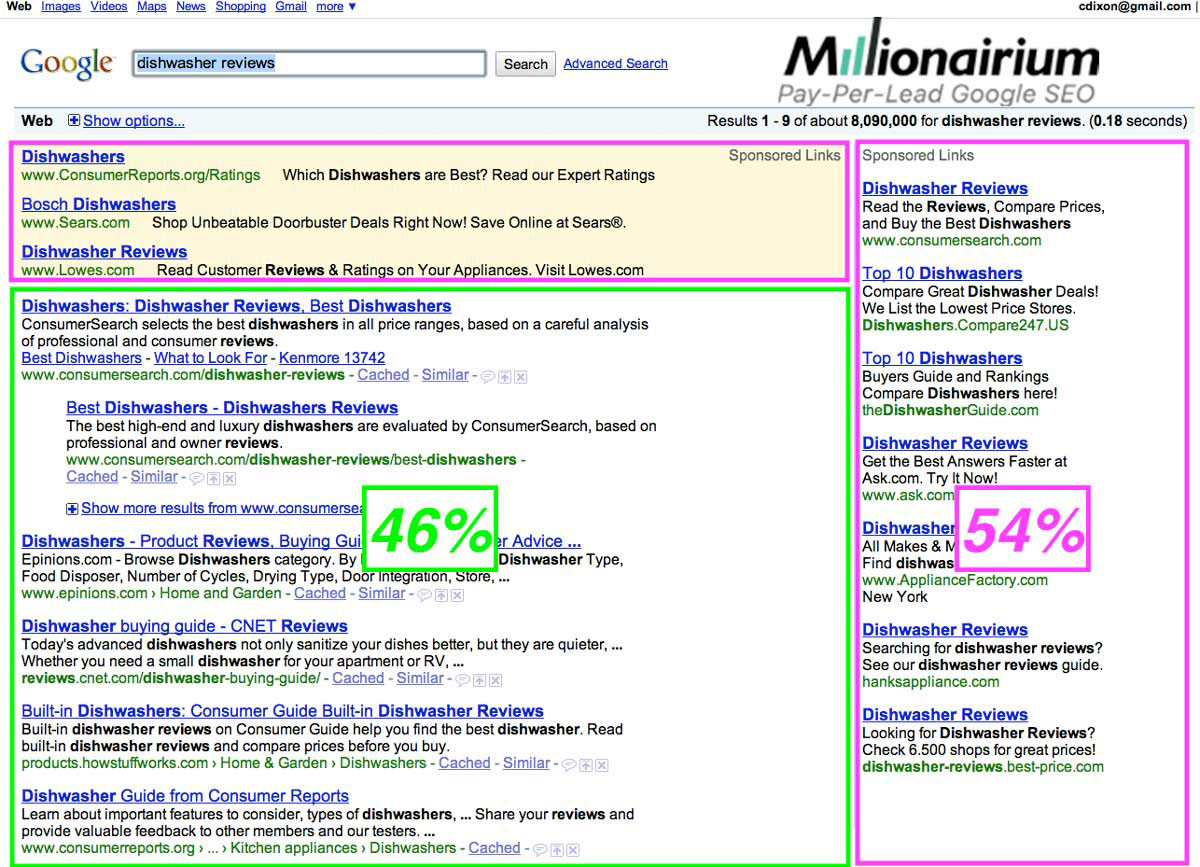
This left the organic results under 46% of the first-page search results.
In 2011, Google briefly changed direction allocating more space to organic results than ads. This was to introduce Google Maps at the top/right of the search result where the ads used to be.
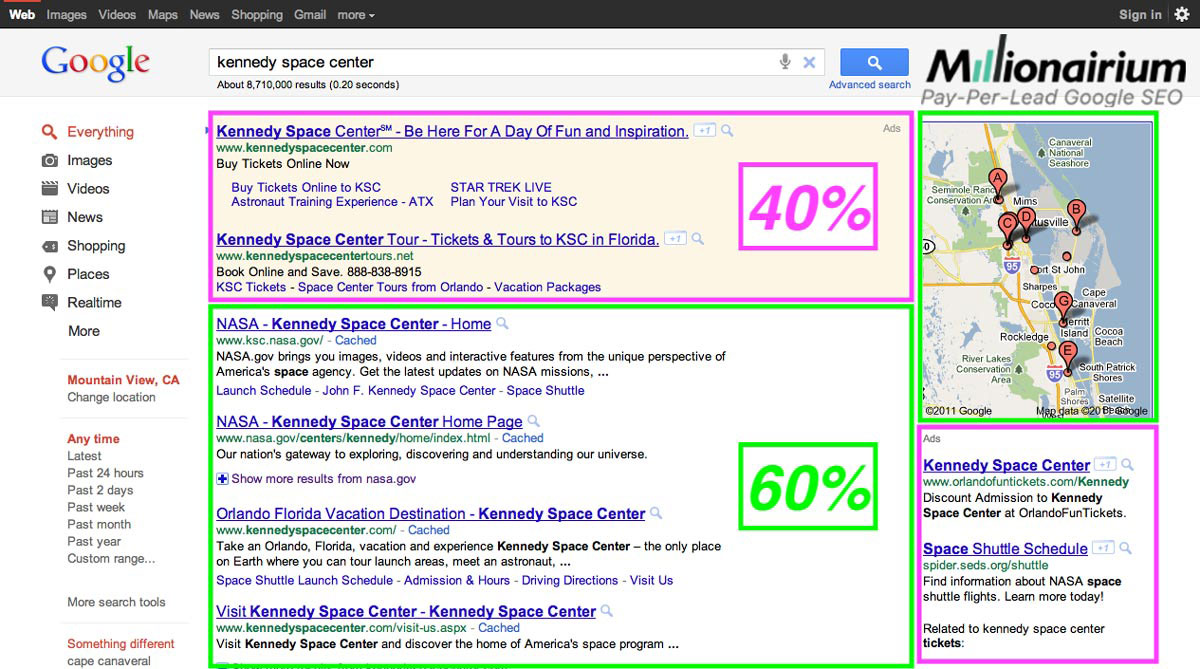
Another significant change in 2011 was changing the term “sponsored listings” to merely “ads”.
This change was reversed in 2023 (see below).
Continuing the trend of adding to the ads space, in 2012, Google allocated almost 60% to the sponsored listing section of the search results first page. Leaving only 40% for organic search results.
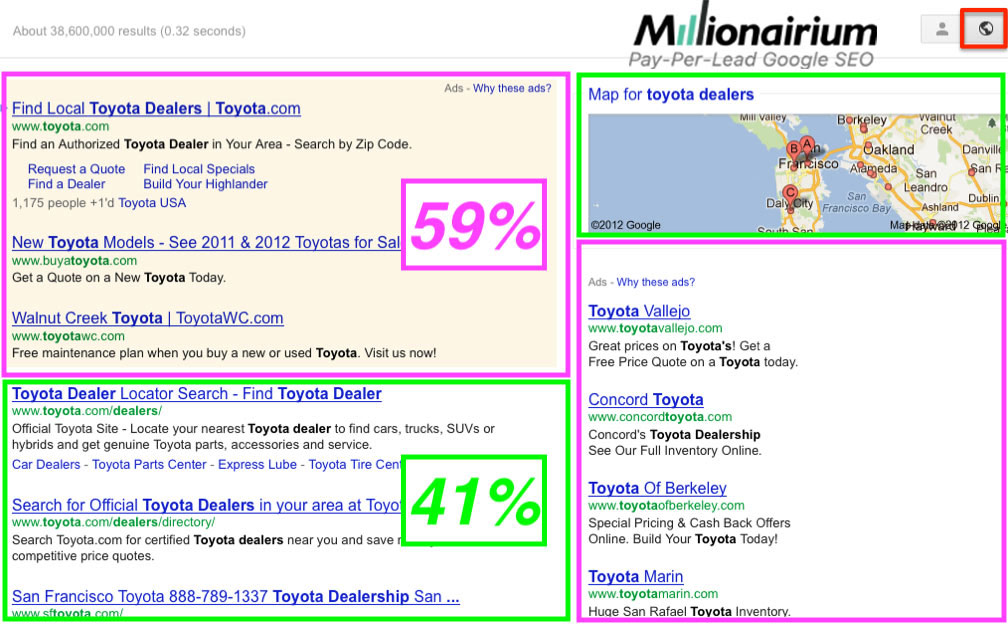
And in 2013, Google further shrank the space for organic results to 26% and increased the space for ads to 74%.
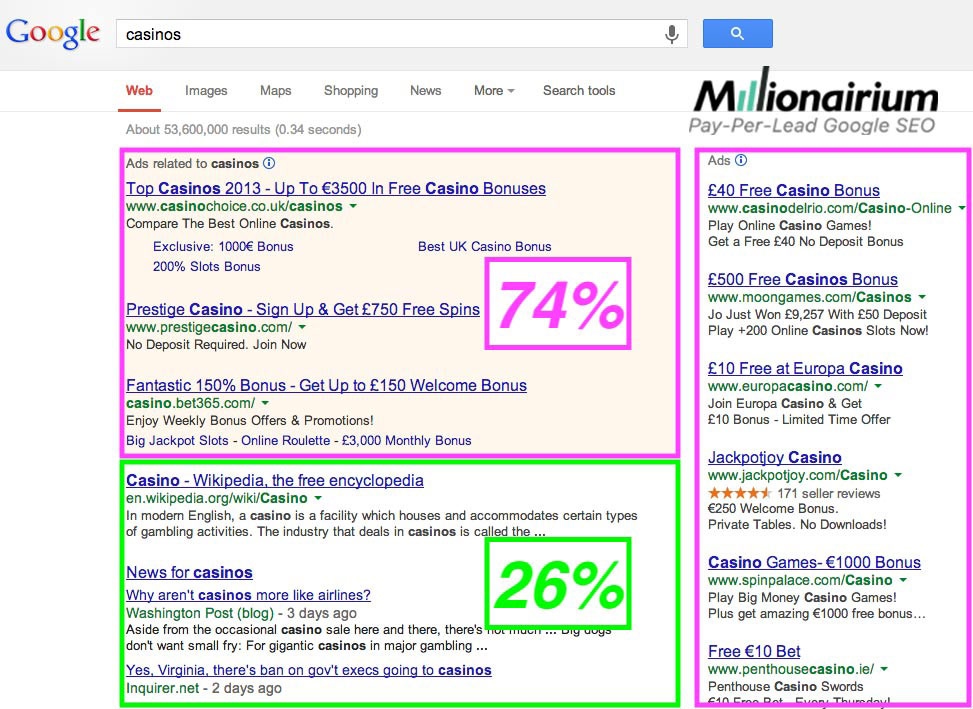
The Google search results page changes in 2014 were more significant.
Although Google gave back some of the space to organic search (45% of the page), it made it extremely difficult to differentiate between ads and organic results by removing the yellow background of the sponsored listings above the organic results (image above).
Instead, it added a small yellow background for the word “Ad” below each listing as well as at the top of the right sidebar.
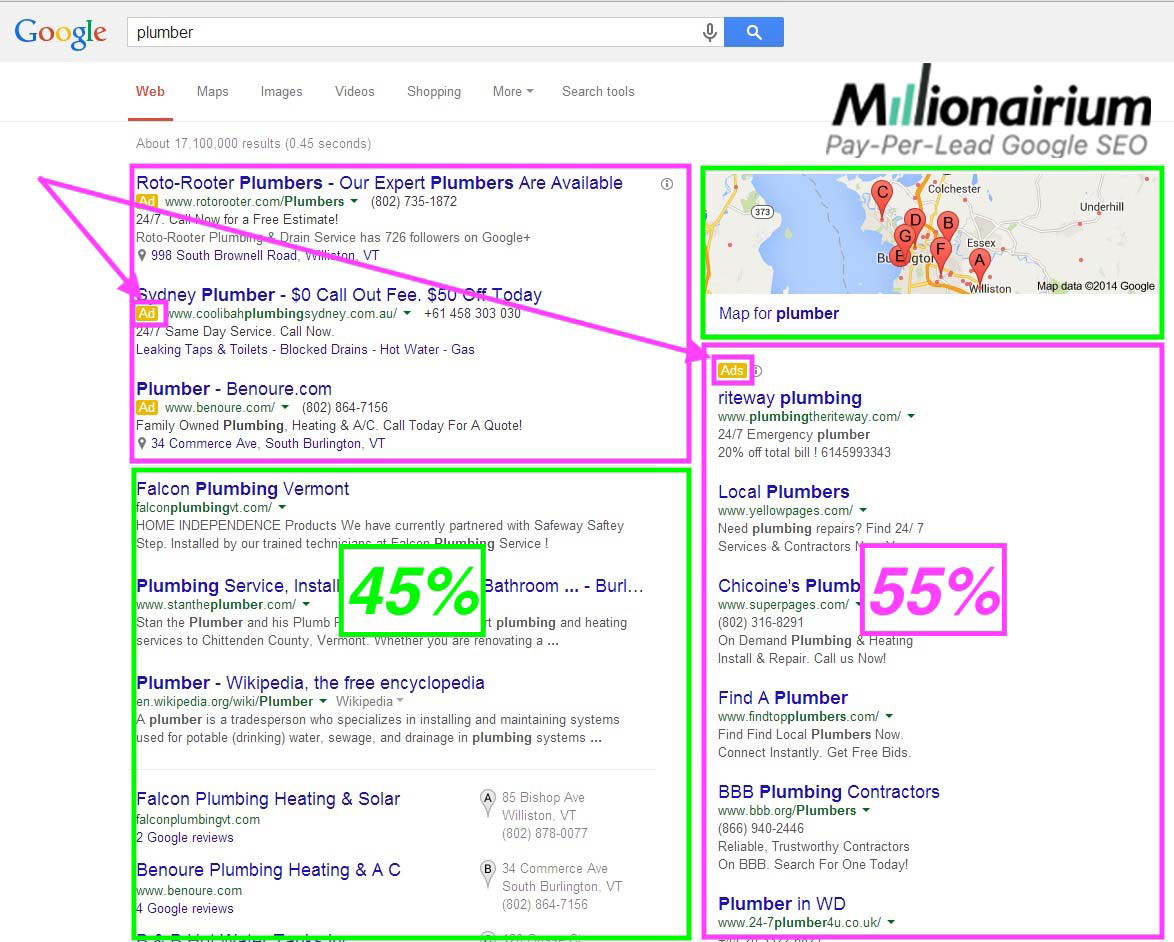
In 2015, Google removed the right-side ads section and increased the number of ads on top of the organic search results. This shrank the organic results on the first page of Google to merely 20%.
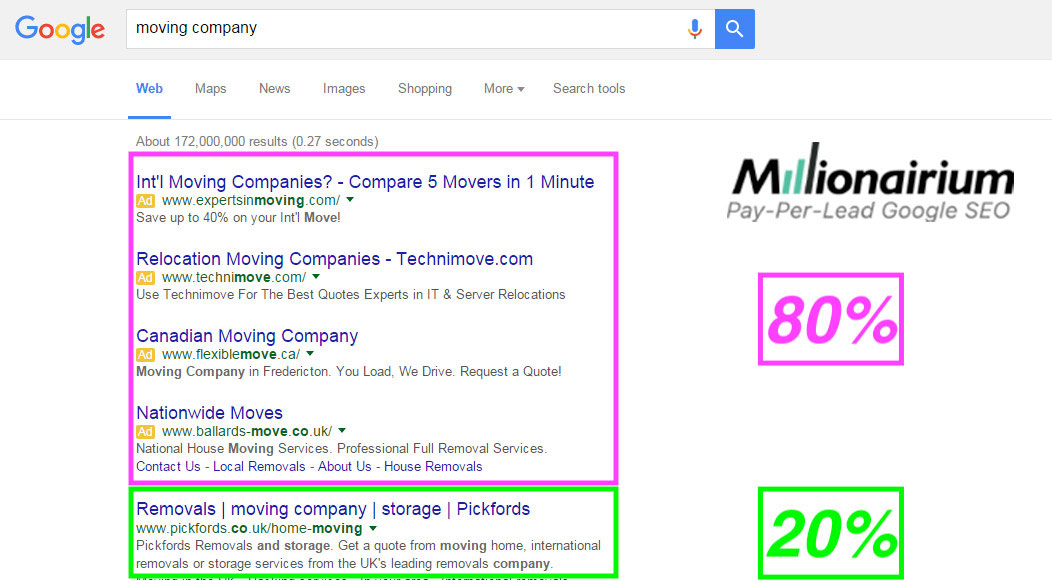
In 2017, Google removed the yellow background from the word “Ad” under each sponsored listing; making it even more difficult for the end user to distinguish between organic search results and ads.
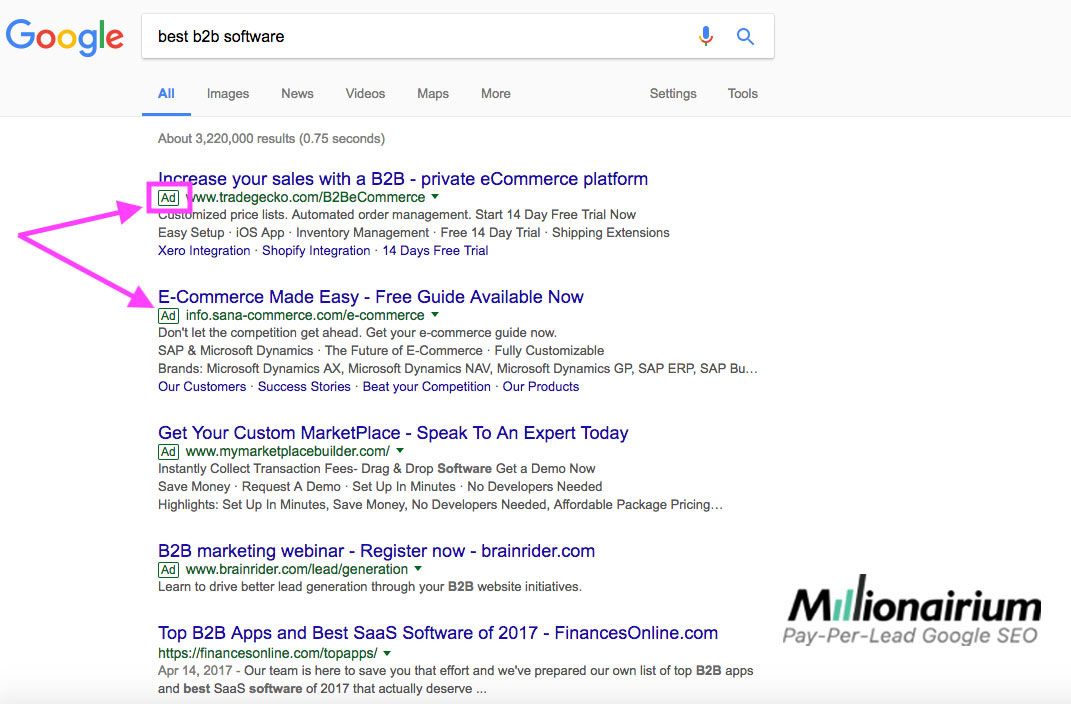
And finally, in 2019, Google gave 100% of the search results page space to sponsored listings and pushed the organic results off the first page.
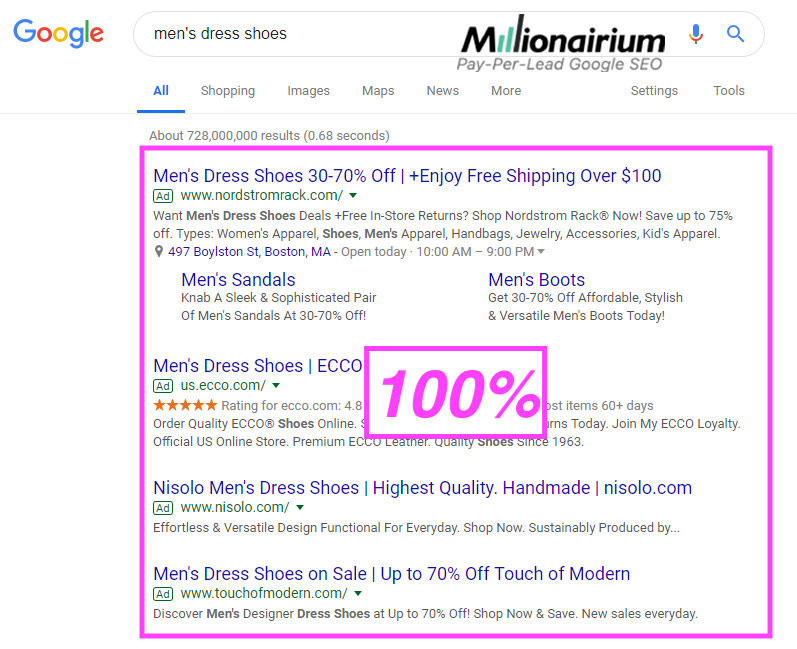
But that wasn’t the end of the story.
Google decided to remove the border of the word “Ad” and change its color to black (bold font).
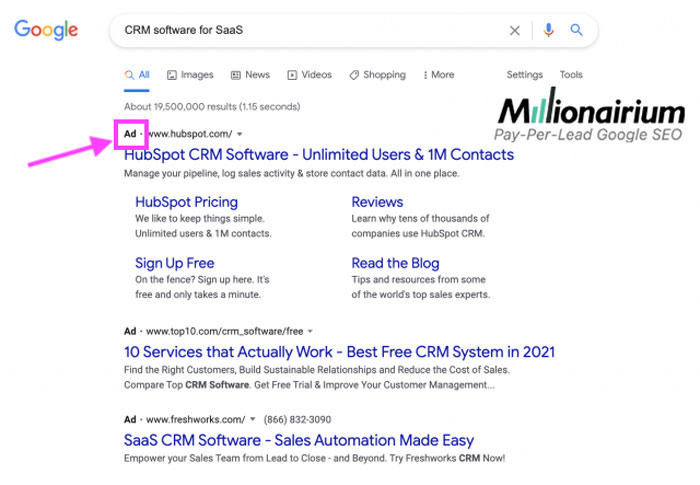
And finally, in 2023 Google managed to push the organic results even further into the second page of the search results.
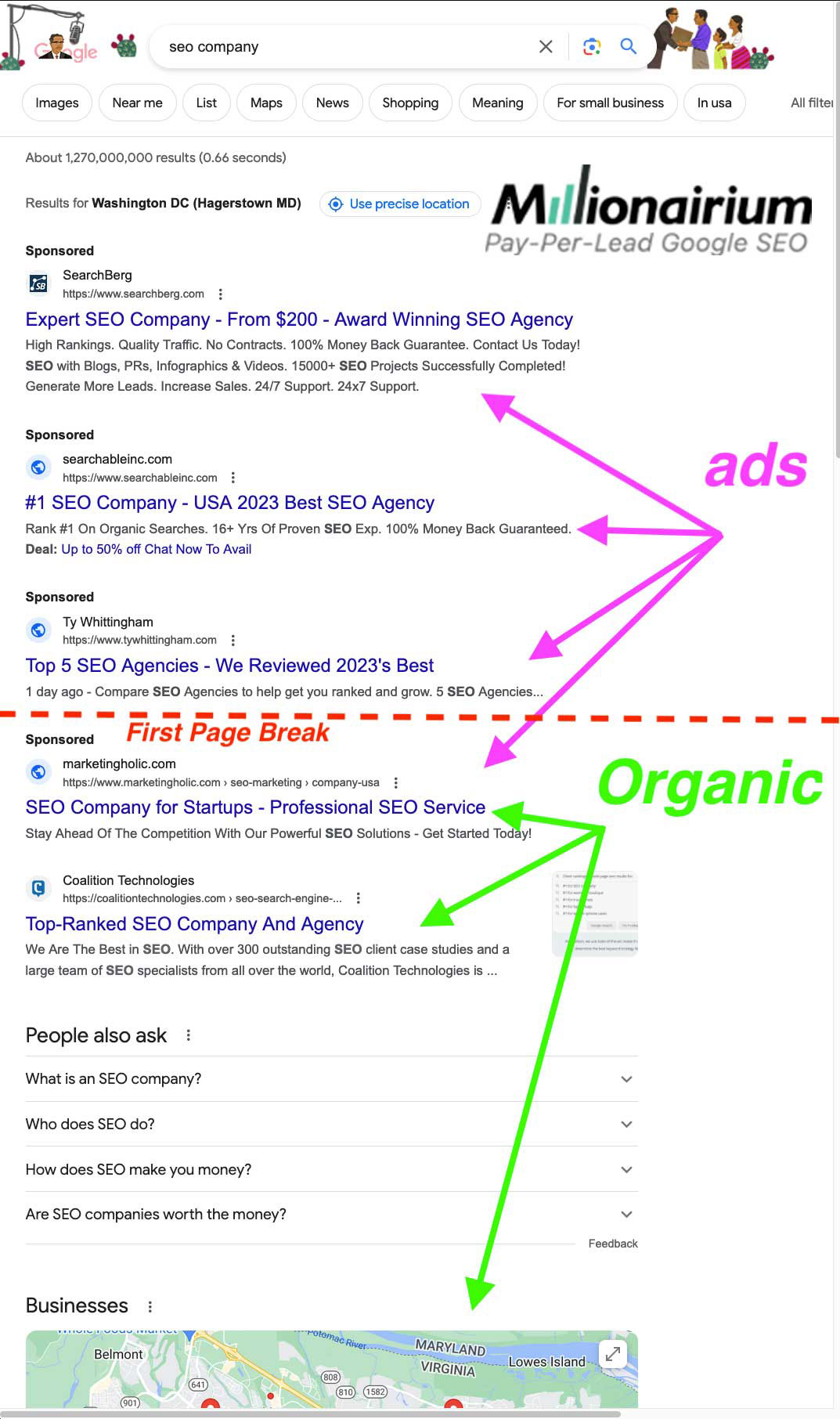
And as you see above, it changed the word “Ads” to “Sponsored” (not including “listing”).
Each step of the way, Google tried to encourage its users to click on ads by diluting the distinction between the ads and organic results.
Not surprisingly, in a study conducted in 2018 by Varn, almost 58% of their survey participants couldn’t differentiate between ads and organic results.
First, it means that both SEO and Adwords are important. Only having an SEO campaign no matter how successful won’t be enough to get you the leads you need for your business.
Second (for local businesses), you must be within the top three Google My Business Pages (GMB). If you’re ranked after the third listing, your business won’t show on the first page of GMB results (because Google only shows three businesses on the first page).
If you have any questions or have a business that needs more leads from the internet, please call us and we’ll do our best to help you.
